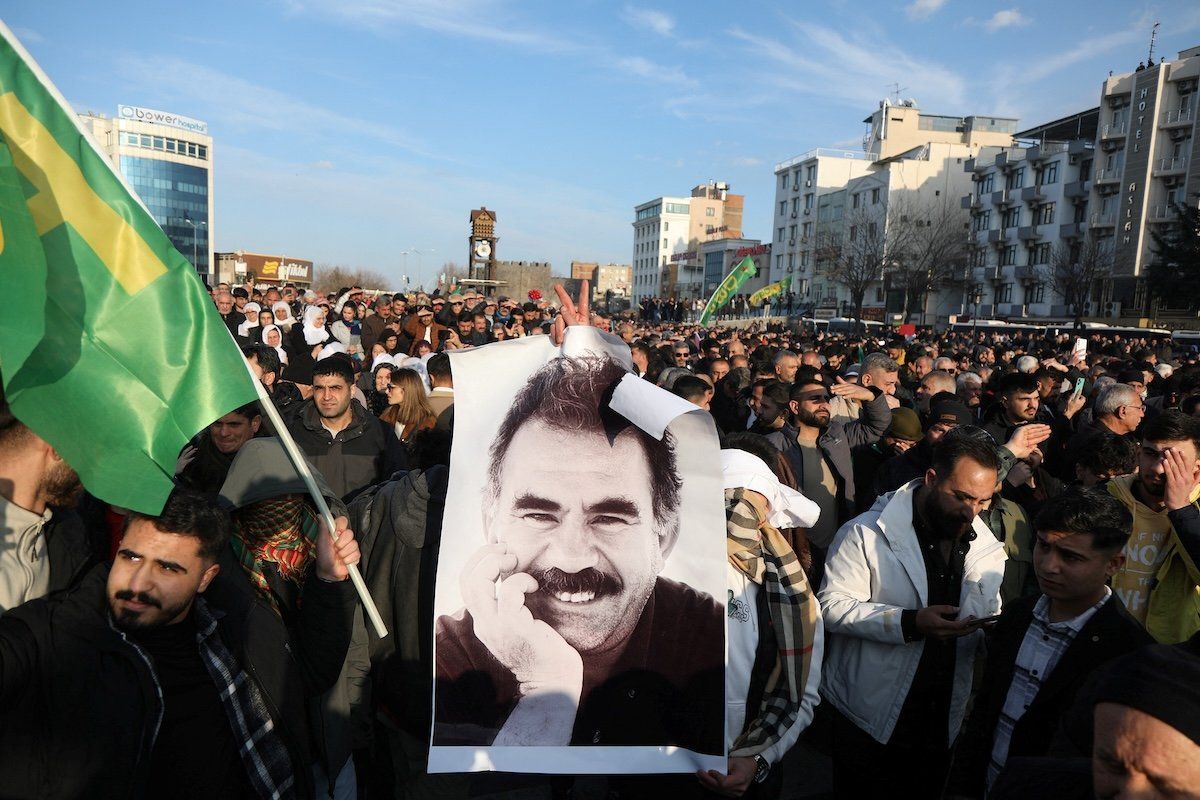For 40 years, the guerrillas of the Kurdistan Workers Party, known by its Turkish
initials PKK, have waged war against the Turkish state in a conflict that’s left more than 40,000 dead.
On Thursday, the group’s jailed leader, Abdullah Ocalan, made a startling demand: The PKK should disarm and dissolve itself.
The background: Kurds, one of the world’s largest stateless ethnic groups, comprise about a fifth of Turkey’s population and are concentrated mainly in the Southeast along the Syrian, Iraqi, and Iranian frontiers.
Formed in the 1980s, the Marxist-influenced PKK initially sought Kurdish secession but later moderated to greater autonomy. The PKK has attacked both military and civilian targets and is considered a terrorist organization by Turkey, the EU, and the US.
Ocalan’s call comes after talks between him, the Turkish government, and Turkey’s main pro-Kurdish political party. It is unclear what concessions, if any, the PKK will get in exchange for dissolving.
Meanwhile, across the border … Kurdish militias tied to the PKK are active in northern Syria, where they fight ISIS with US support and have carved out autonomous areas that Turkey views with extreme suspicion. Turkish troops and proxies have clashed with the Syrian Kurdish groups, which seek autonomy within the new Syria.
We’ll be watching to see what the terms of any PKK-Ankara deal are, and how it may affect the balance of power in northern Syria.
